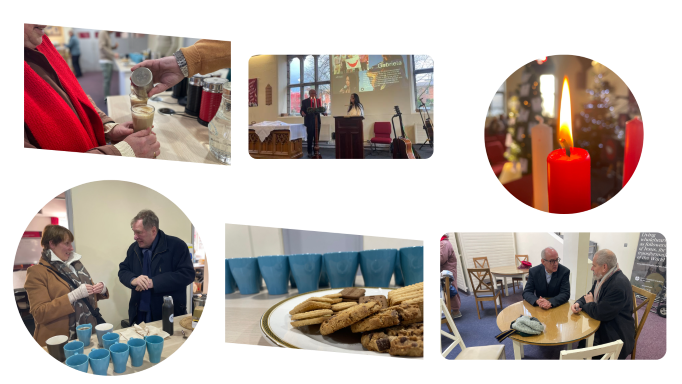A Warm Hello
Hello! Welcome to our website, we're so happy that you have found us here. Below is information you might need if you are thinking about attending our Sunday service. We hope it provides you with everything you need to know, but if there is anything else you would like to know, please do get in contact with the form below and we will get back to you as soon as possible.
The Methodist Centenary congregation that meets in Leeson Park is gathered from a wide area and from diverse backgrounds. Some have been here since childhood, and others have found it a welcoming community, and decided to make this their spiritual home in recent years. A particularly attractive element of our public worship is the fellowship over tea/coffee immediately after morning worship. It is wonderful that you are interested in attending our church, below are details of what we have available to varying age groups.
Where and When
We meet in the Liitton Hall at Wesley House (details here) for our Sunday Service starting at 10:30am. For your first visit, we recommend arriving 10-15 minutes early to ensure you get a parking space and find somewhere to sit before the service begins. When you arrive, you should be greeted by someone on our Welcome Team who will be ready and waiting with a smile to say hi.
We serve tea, coffee and biscuits after our service has ended. We hope you will stay for refreshments afterwards as it is a great way to meet people, or simply take time to find your bearings. All refreshments are free.
Accessibility: There is wheelchair access. There are disabled toilets in the main foyer. We also have a lift to the foyer area. If you need assistance please let one of the Welcome Team know and they will be happy to help you.
Our Service
We meet for public worship at 10.30am on Sunday mornings in the Litton Hall, part of the Wesley House complex. The service lasts for approximately one hour and includes prayers of adoration, confession and thanksgiving, a talk for children, scripture readings, an adult address of 15-20 minutes, prayers for others and worship is led by an organ, piano and praise group.

What about my kids?
Children stay with their parent or grown-up at the start of the service for the welcome, notices, songs and children's address. We really value worshipping God all together as a family. After the praise group finish their songs, whoever is leading the service will announce that it’s time for the younger members to go continue their worship in another room. If it is your first time attending with your children, please come out with them to register them as part of our child safety policy.
The children's group activities vary depending on the age but usually there is a friendly welcome, bible stories, praying, music, craft, drama, fun games and free play. Please pick your children up as soon as the service finishes.
Getting Connected
Small Groups
While Sundays are a great way to meet new people, it is often in smaller gatherings that you can really get to know someone. Being part of one of our small groups allows you to make new friends, share together and support each other. We have a variety of groups that meet throughout the week, some afternoons and some evenings. Check out Small Groups and see if there’s one that you could join, or we can put you in touch with a small group leader who will be more than happy to invite you along to their group.
Serving and Volunteering
If you want to get involved in the life of the church and help us make Sundays run smoothly, you can sign up to serve on a team here.
-
Praise Group
-
Tea/Coffee
-
Set up
-
PowerPoint
-
Welcoming
-
Sunday School
-
Connect through English
Get in touch with us to plan your visit
If you would like to come and visit the church beforehand you are more than welcome! Get in touch and we can arrange a time that suits you.
Next, we will contact you by email to say hello and help arrange anything necessary for your visit. |
Leadership
We hope that whoever you are, you will feel at home at our church.
Best Wishes
Methodist Centenary Church